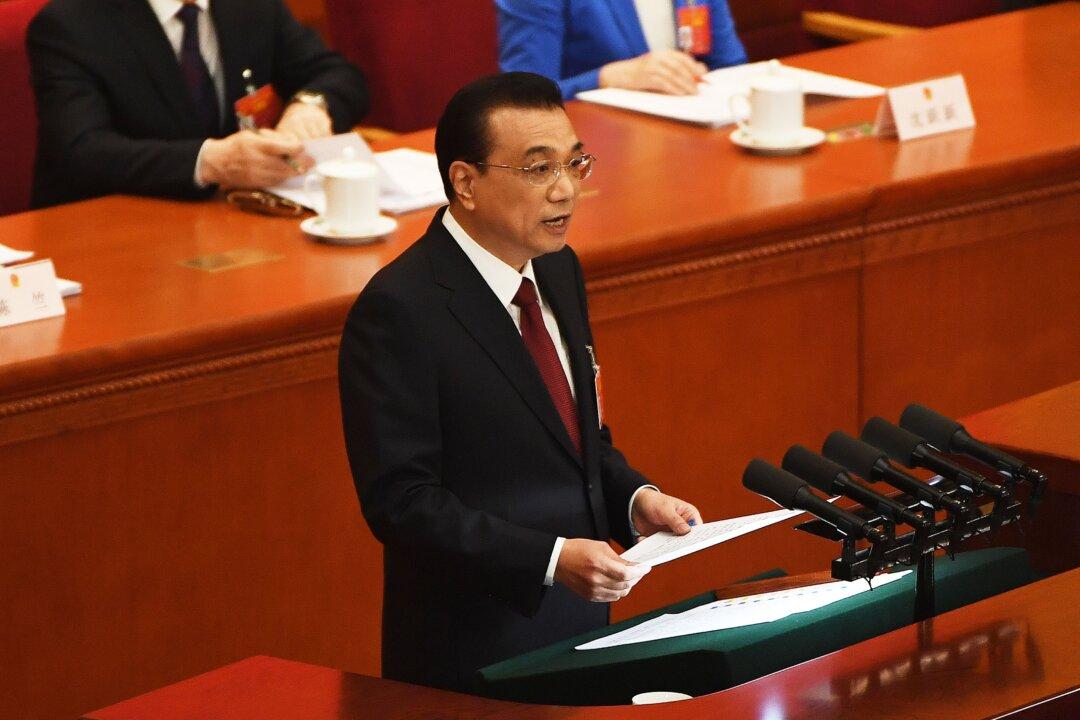Tackling economic problems was the focus of Chinese Premier Li Keqiang’s work report given before the Chinese Communist Party’s rubber-stamp legislature during an annual meeting on March 5.
Over the course of the next two weeks, about 3,000 delegates in the National People’s Congress (NPC) will “vote” on legislation already pre-approved by Party leadership—as part of the annual “two sessions” meetings of the NPC and its political advisory body, the Chinese People’s Political Consultative Conference (CPPCC).
As China’s economic downturn deepens, the Party leadership has signaled through public speeches that getting the economy back on track is its top priority.
Economic Challenges
At the NPC meeting on March 5, the Chinese premier told the delegates that “the environment facing China’s development this year is more complicated and more severe.”
“There will be more risks and challenges that are either predictable or unpredictable, and we must be fully prepared for a tough battle,” he said.
Li announced a series of stimulus measures meant to keep the economy on a safe footing, including planned cuts of almost 2 trillion yuan ($298.3 billion) in taxes and fees for companies.
Those tax cuts are more aggressive than the 1.3 trillion yuan proposed in 2018, and include reductions aimed to support the manufacturing, transport, and construction sectors.
The Chinese regime has also set a target for economic growth of 6.0 percent to 6.5 percent, less than the 6.6 percent growth rate posted in 2018—which was the lowest level recorded in 28 years.
Experts attribute the slowing pace partly to the effects of the U.S.–China trade war, which saw $250 billion worth of Chinese imports slapped with U.S. tariffs, more stringent scrutiny of Chinese investments in the United States, and foreign companies moving production out of China to avoid the effects of the tariffs.





